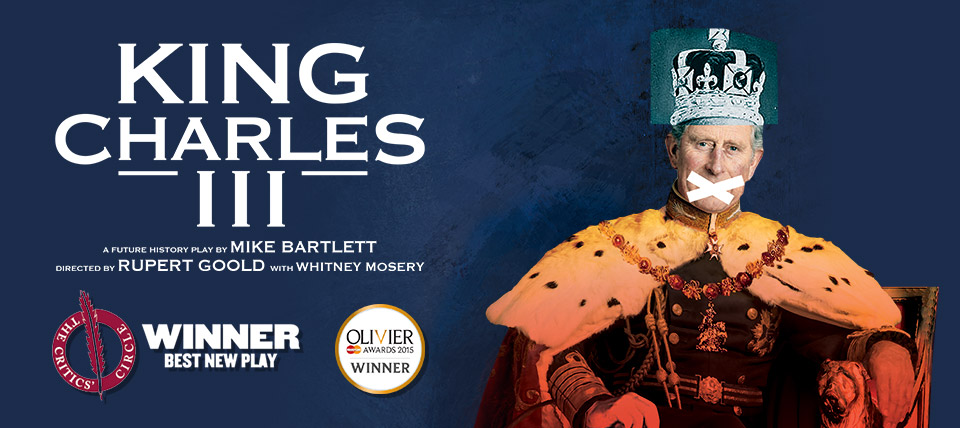The Manchester Opera House is beautifully traditional: long rows of small velvet green seats; gold features on the walls; the dependable old proscenium arch; the reassuring safety curtain.
Enter, then, King Charles III, a modern play which perfectly exemplifies the clash of solid tradition and modern ideals, and explores the possible blurring of the two. The play, with its often Shakespearean language spoken by well-known contemporary figures, delves into the complexities of retaining a monarchy while twenty-first century Britain has moved so far away from everything such a power stands for. The set itself is a semi-circle of medieval castle wall enclosing a raised platform which lent itself perfectly to the atmospheric yet perhaps slightly bloated opening scene and continued to provide an ominous presence throughout the performance.
Charles, played by acting veteran Robert Powell, is the new king thrust into a world where he suddenly realises the crown he craved may not be what he truly wants, as the power it supposedly signifies is hollow and meaningless. The questions this production raises on morality, democracy, and family, as Charles is faced with pressure to sign a law he does not believe in, are at times truly discomfiting. Powell is, naturally, mesmerising as Charles, with some of his speeches utterly compelling. Jennifer Bryden, in her role as the ever-popular Kate Middleton, is also worth a special mention, as she managed to retain the humanity of the determined, modern-centric Duchess even in the character’s darkest moments. 
Despite the depth afforded to these characters, this layering was unfortunately passed over Jess, Harry’s love interest, who although wilful and energetic did at times feel like a replication of the Manic Pixie Dream Girl trope, a ‘crazy and wild’ female who served to provide little but a change of direction for the male character, particularly in her first few scenes. However, I will add that the side plot of revenge porn, blackmail, and the media’s fascination with scintillating images did in some way alleviate this, reminding us of the modern setting of the play while raising some interesting points about privacy and freedom of the press.
Shakespearean motifs were everywhere, from rhyming couplets to iambic pentameter to heart-rending monologues to wandering ghosts (who, unfortunately, appear to do little to further the plot). Even Kate’s silence in the final scene seemed reminiscent of Isabella’s speechlessness in Measure for Measure. It worked wonderfully, with the grand speeches and archaic language somehow fitting perfectly with the glimpse into the fictitious private life of a family the nation knows so well and yet not at all, cementing them into the past they seem more connected to than anybody else.
No grand Shakespearean ending, either tragic or comedic, was offered, however; instead, we were treated to an emotionally uncomfortable appendix scene. The tying up of the sub-plot between Harry and Jess felt tacked-on and not well integrated or foreshadowed in the rest of the play, with the main plot taking the bitter centre stage.
The play itself is solidly good; the direction smooth and interesting; the performances exemplary. A little more could have perhaps been done with the action of the plot, of which the sequences were visually striking, but overall I have to say: long live King Charles III.
Reviewed On: 7th March 2016
Reviewed By: Hannah Torbitt

